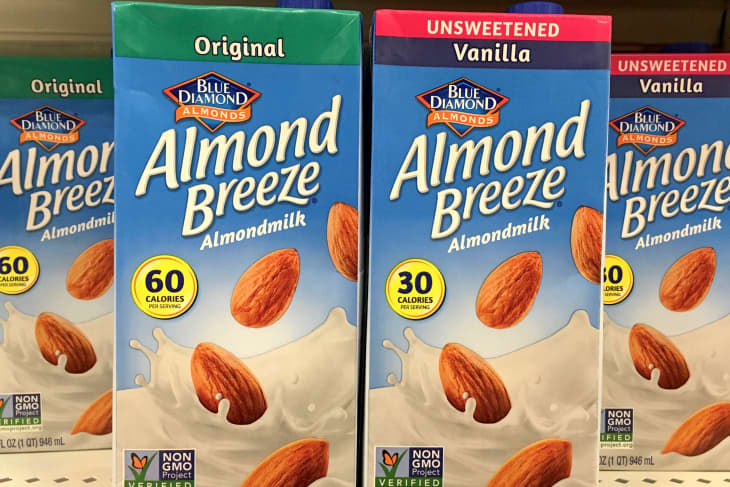Pediatrics Organization Advises Against Non-Dairy Milk for Young Children
If you’ve walked past the refrigerated section at the grocery store lately, you’ve noticed that milk doesn’t just mean milk anymore. In addition to that OG dairy product, the shelves are now crowded with countless varieties of plant-based and non-dairy milks, including soy, almond, coconut, rice, pea, and hemp versions (and probably a few we left out). But according to a recent statement from a pediatric organization, there’s really only one milk option when it comes to filling your child’s sippy cup.
Earlier this week, the Canadian Pediatric Society and Dieticians of Canada issued a joint statement, which said that soy and other plant-based milks are “inappropriate alternatives to cow’s milk” for the first two years of a child’s life. The organizations based that decision on the amount of both protein and fat that should be part of a child’s diet.
“We see parents that are well-intentioned that are moving to a plant-based beverage for their children thinking they are doing a good thing, while actually they are withholding important nutrients and proteins,” Dr. Catherine Pound of the Canadian Paediatric Society tells The Canadian Press.
The Society recommends that children who are between 2 and 8 years old need between 13 and 19 grams of protein every day, the amount that is found in two cups of both cow’s milk or a protein-fortified soy milk. (The amount of protein in almond, coconut, and other plant-based milks is negligible).
Pound also recommends cow’s milk for young children due to its fat content. “Fat is extremely important for a child or a toddler because it certainly contributes to brain growth,” she says. (It is worth noting that her organization does not recommend that babies younger than 9 months consume cow’s milk, but that the homogenized full-fat variety is beneficial for children between 9 and 24 months of age).
A study published earlier this year in the American Journal of Clinical Nutrition suggested that children who drank plant-based milks might be slightly shorter than their cow’s milk-chugging peers. The researchers surveyed the dietary habits of more than 5,000 children between 1 and 3 years old, and discovered that those who drank non-dairy beverages were 0.4 centimeters shorter than the average height for children their age.
Kitchn has reached out to the American Academy of Pediatrics for comment on its Canadian counterpart’s recommendations.
